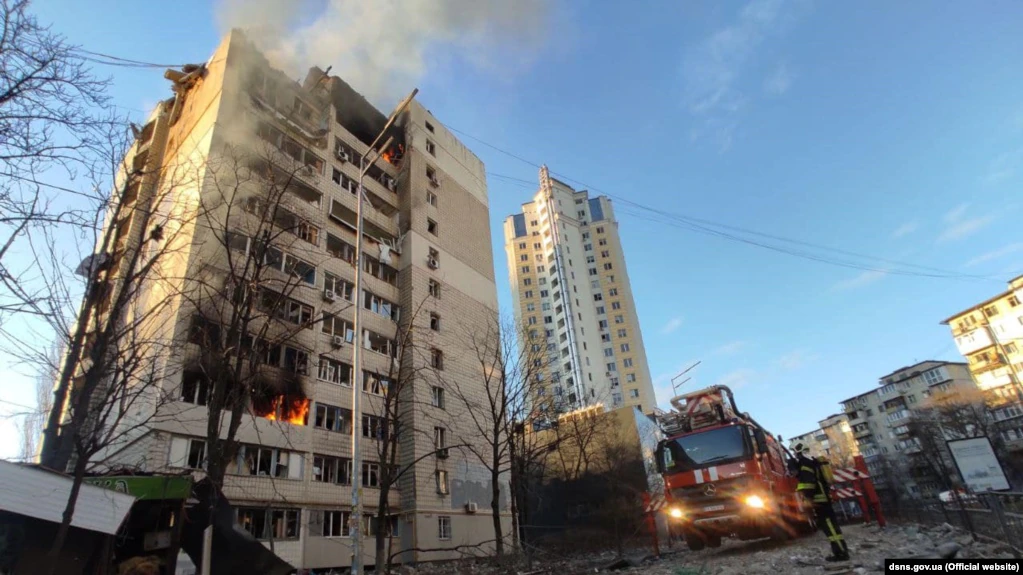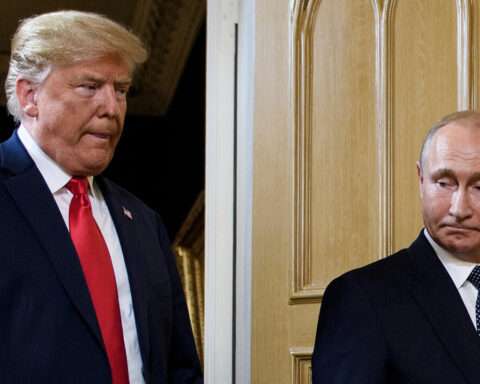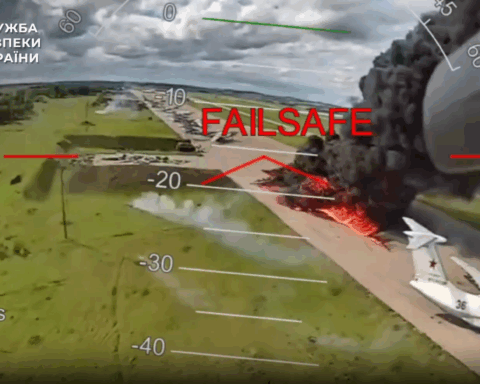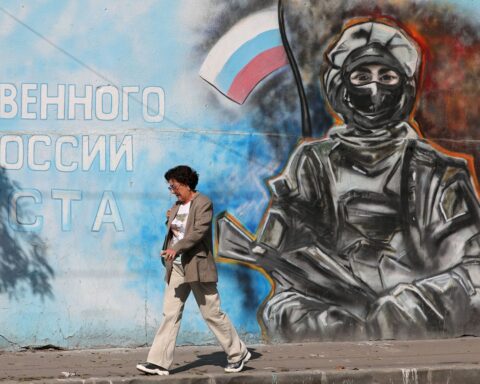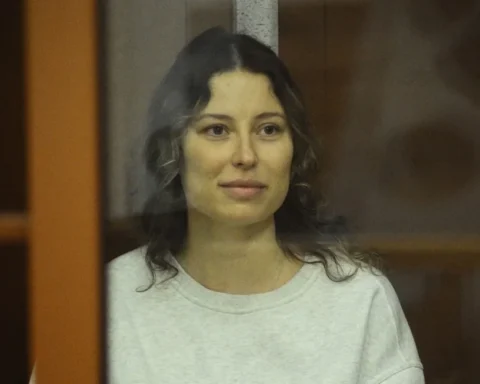Russia has escalated its bombardment of Kyiv overnight and launched new assaults on the port city of Mariupol as peace talks were to resume and as Ukrainian President Volodymyr Zelenskiy prepared to make a direct appeal for more help in a speech to the U.S. Congress.
Russian forces have intensified attacks on Kyiv’s suburbs, notably those to the northwest and west, the head of the Kyiv region, Oleksiy Kuleba, said on March 16.
He said the Russians were trying to cut off the capital from transport arteries and destroy logistical capabilities as they plan a broader attack to seize Kyiv.
Kuleba added that Russia had occupied the city of Ivankiv, 80 kilometers north of Kyiv, and controls the surrounding region on the border with Belarus.
Russian Advances Near Kyiv
State of the advance of Russian forces around Kyiv as of March 14.

Shrapnel from an artillery shell slammed into a 12-story apartment building in central Kyiv on March 16, destroying the top floor, according to a statement and images released by the Kyiv emergencies service. The neighboring building was also damaged. The service reported two victims but did not elaborate.
Bombardment of the capital edged closer to the city center, smashing apartments, a subway station, and other civilian sites.
But a senior U.S. defense official quoted by AP on March 15 said Russian troops were still about 15 kilometers from the center of the capital.
The official, who spoke on the condition of anonymity, said the Russians were using long-range fire to hit civilian targets inside Kyiv with increasing frequency but that their ground forces were making little to no progress around the country.
The city remained under a 35-hour curfew early on March 16. Kyiv Mayor Vitali Klitschko announced the restriction the day before, warning that as Russian forces step up their strikes and close in on the capital it faces a “difficult and dangerous moment.”
Battles also continue to rage in Mariupol and other cities, including Kharkhiv and Mykolayiv.
Russian naval ships overnight fired on a town near Mariupol on the Sea of Azov and another near Odesa on the Black Sea, according to local officials.
Ukraine Territorial Control
State of the advance of Russian forces in Ukraine as of March 15.

Zelenskiy, previewing his speech to the U.S. Congress, thanked President Joe Biden and “all the friends of Ukraine” for $13.6 billion in new support.
He is expected to appeal for more weapons and more sanctions to punish Russia and repeat his call to “close the skies over Ukraine to Russian missiles and planes.”
In a video address to the nation, he said Russian forces were unable to move deeper into Ukrainian territory on March 15 but continued their heavy shelling of cities.
He added that nearly 29,000 civilians had been able to flee through humanitarian corridors in the past days but said the Russians refuse to allow aid into Mariupol.
Zelenskiy also suggested there was still some reason to be optimistic negotiations might yet yield an agreement. Russia’s demands are becoming “more realistic,” he said after delegations met on March 15 over video conference.
“Efforts are still needed, patience is needed,” he said. “Any war ends with an agreement.”
Before the talks on March 15, Russian Foreign Minister Sergei Lavrov said Moscow would press its demands that Ukraine drop its bid to join NATO, adopt a neutral status, and “demilitarize.”
Lavrov said on March 16 that peace talks with Ukraine weren’t easy, but added that there was hope for compromise.
“I am guided by the assessments given by our negotiators. They say that the negotiations are not easy for obvious reasons. But nevertheless, there is some hope of reaching a compromise,” Lavrov said in an interview with Russia’s RBK news outlet.
Zelenskiy told European leaders gathered in London on March 15 that he realized NATO has no intention of accepting Ukraine.
“We have heard for many years about the open doors, but we also heard that we can’t enter those doors,” he said. “This is the truth, and we have simply to accept it as it is.”
Zelenskiy has previously said he realizes NATO isn’t going to offer membership to Ukraine and that he could consider a neutral status for his country but needs strong security guarantees from both the West and Russia.


